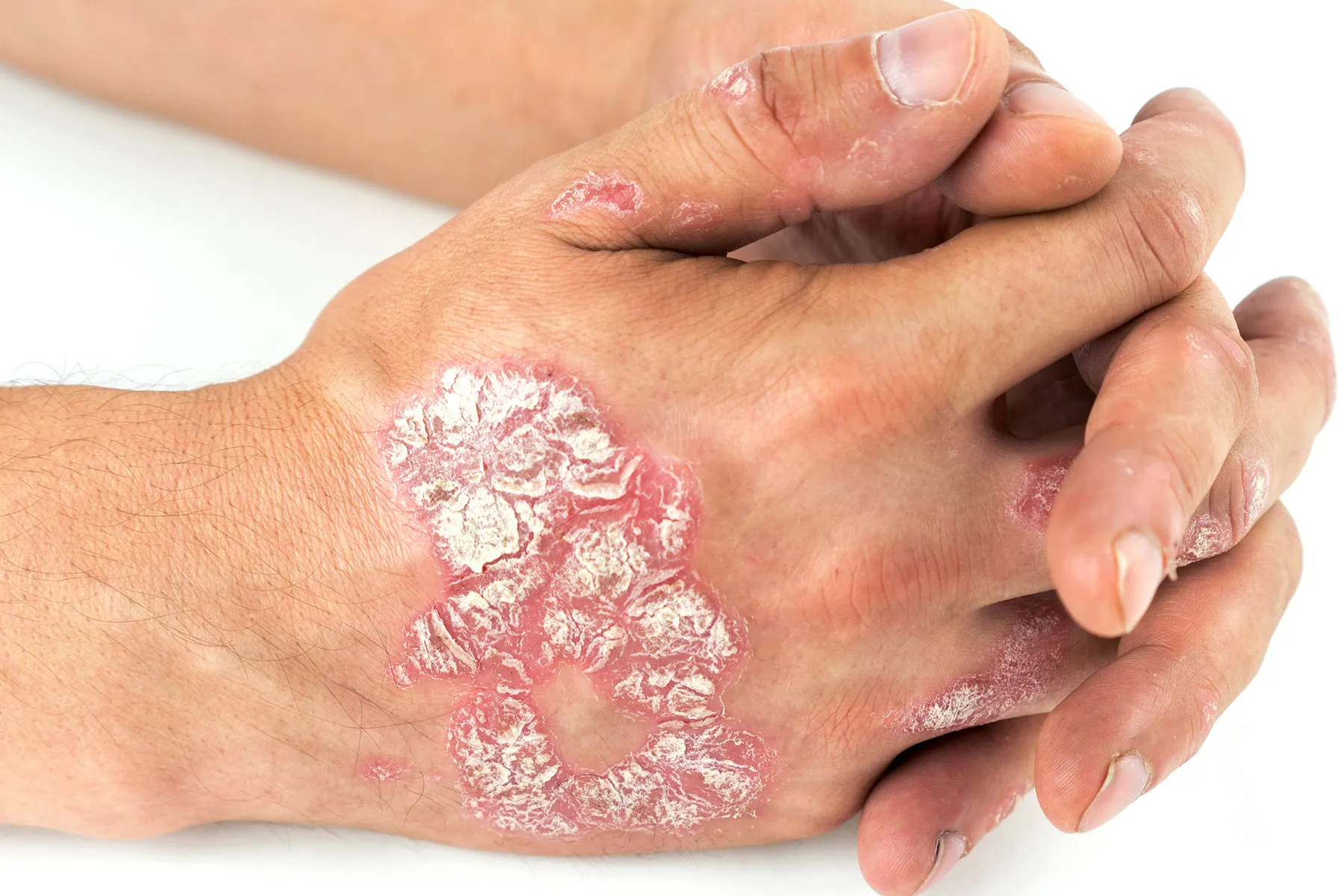Symptoms of Plaque Psoriasis:
- Red, raised, and inflamed patches of skin covered with silvery scales.
- Itching, burning, or discomfort in the affected areas.
- Cracking and bleeding of the skin in severe cases.
- Patches that may vary in size and can merge to cover large areas.
- Changes in nail health, such as pitting, thickening, or discoloration.

Causes:
Plaque psoriasis is an autoimmune disorder where the immune system mistakenly speeds up the lifecycle of skin cells. This causes skin cells to accumulate rapidly, leading to the thick, scaly patches. Although the exact cause is unknown, genetic and environmental factors play a significant role.
Triggers:
Certain factors can exacerbate plaque psoriasis, including:
- Stress
- Infections (like strep throat)
- Skin injuries (cuts, scrapes, or sunburns)
- Cold, dry weather
- Certain medications (e.g., beta-blockers, lithium)
- Alcohol or smoking
Treatment Options:
There’s no cure for plaque psoriasis, but treatments aim to reduce symptoms and improve quality of life. Options include:
- Topical Treatments:
- Corticosteroids
- Vitamin D analogs (e.g., calcipotriol)
- Coal tar or salicylic acid preparations
- Phototherapy:
- Controlled exposure to ultraviolet (UV) light
- Systemic Treatments:
- Oral medications (e.g., methotrexate, cyclosporine)
- Biologics (e.g., adalimumab, secukinumab)
Managing Plaque Psoriasis:
- Keeping the skin moisturized
- Avoiding known triggers
- Following prescribed treatments
- Seeking regular medical advice for effective management







